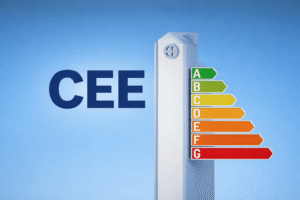The Impuesto sobre Bienes Inmuebles (IBI) is the equivalent of the “property tax” in France, the “real estate tax” in Belgium, or the “Council Tax” in the United Kingdom. It is a mandatory annual local tax for all property owners in Spain.
Who is affected?
Any individual or legal entity owning real estate (residential, commercial, land) in Spain as of January 1st of each year.
How is the IBI calculated?
The IBI is calculated by applying a tax rate to the cadastral value of the property (valor catastral). This value is an administrative estimate of the property's value, often lower than its market value.
- Cadastral value: it is determined by the town hall (Ayuntamiento) based on criteria such as location, area, age and quality of construction.
- Tax rate: it is set each year by each town hall. It generally varies between 0.4% and 1.1% for urban properties, and between 0.3% and 0.9% for rural properties.
Real examples of IBI in Valencia
As the owner of three properties in Valencia, here are the actual IBI amounts I paid in 2024:
- Apartment of 82 m², Calle Cura Planelles 16, Valencia: 130 €
- Apartment of 75 m², Calle Juan Mercader 12, Valencia: 102 €
- Apartment of 52 m², Calle Carlos Ros 3, Valencia: 120 €
Each year, the amount of the IBI changes.
Let's take the example of the apartment located on Calle Cura Planelles:
- 2019: €174
- 2020: €171
- 2021: €200
- 2022: €163
- 2023: €159
- 2024: €130
Why these upward or downward variations?
This is mainly due to one factor: the town hall sets the applicable tax rate each year (tipo de gravamen), within a range framed by law.
For example:
- In 2020, the rate in Valencia was 0.72%.
- In 2024, it decreased to 0.57%.
This rate change can significantly increase or decrease the IBI, even if the cadastral value of the property remains the same.
When and how to pay the IBI?
- Payment period: it varies depending on the town halls, but it is generally between September and November.
- Payment methods:
- Online via the town hall website.
- By direct debit.
- Online via the town hall website.
How to set up direct debit for IBI payments?
A little Terreta tip: set up direct debit for IBI payments, so you don't have to think about it anymore.
To do this, you must send a request to the town hall, accompanied by a few documents:
- Your NIE
- The “Copia Simple” which proves that you own the property
- The signed Direct Debit Authorization
- The RIB (bank details) of the bank account to which you want to direct debit the payment
For the direct debit authorization, here is a template that will do the trick, which you must date and sign:
Application for direct debit of IBI (Property Tax)
My personal data:
I,
Name and SURNAME: ____________________________________________________________________________
NIE – Foreigner Identification Number (if I am a foreigner): ___________________________
Passport number or DNI (if Spanish): ___________________________________________
owner of the property located at the following address:
_____________________________________________________________________________
I request the direct debit of the Property Tax (IBI) corresponding to the next and subsequent years, with payment in a single installment.
in the account with IBAN: _____________________________________________
Place: ____________________________
Date: ____________________________
Signature: ____________________________
Here is an email template to send to the town hall, for example for Valencia it will be to ayuntamientovalencia_gti@valencia.es:
“Buenos dias,
I am attaching the following documents to direct debit the IBI for my property located at the following address _____________________ Valencia:
- NIE
- Simple Copy
- Proof of bank account ownership
- Signed direct debit request
Thank you in advance,
Best regards”
For any other city, feel free to search on Google or ChatGPT for “domiciliar pago ibi”, and add the name of the city. You will find the procedure.
What does the IBI document look like?
Here is an example of an IBI document, so you can see what it looks like.

Important points for foreign investors:
- Verification of the IBI: when purchasing a property, make sure that the IBI is up to date. The seller must provide proof of payment for the last few years.
- Consequences of non-payment: late payment penalties and interest apply in the event of non-payment. The town hall may also initiate proceedings to seize the property.
- Possibility of appeal: if you believe that the cadastral value of your property is excessive, you can file an appeal with the town hall.







